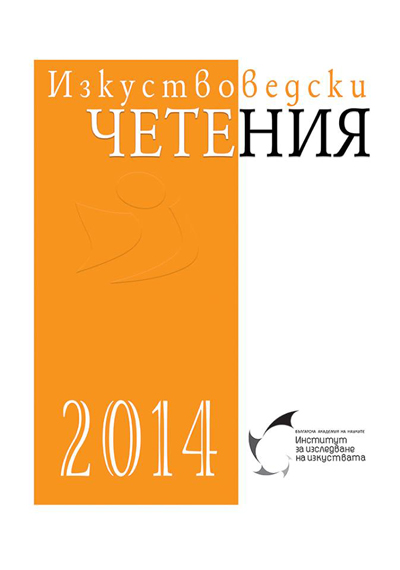Моделите на постмодерната култура
Models of ‘Postmodern Culture’. An Attempt at Differentiation
Author(s): Svetlana NeichevaSubject(s): History, Philosophy, Fine Arts / Performing Arts, Music, Aesthetics
Published by: Институт за изследване на изкуствата, Българска академия на науките
Summary/Abstract: The expression postmodern culture occurs in many languages as synonymous with postmodernism. At the same time, ever since Lyotard published in 1979 his hypothesis and specified its two components – post-industrial society – postmodern age in culture – a theory of postmodernism has been developed. It distinguishes itself from other theories by its critical approach in relation to modernism. For this reason, postmodernism is generally regarded as being a challenge to the established order of understanding accepted by the academic fields of study. More precisely, theoretical postmodernism is a trend in various disciplines that seeks to revaluate (or reconceive) the foundational principles and concepts of the modern thought. “Post-modern culture” is one of those “post” terms that both designate and embody the idea of epochal shift from the modern to postmodern era. The view that music actively constructs ‘culture’ and ‘explains reality’ became possible with the publishing of works exhaustively arguing the contemporary (Western) reality in a combination of its quite different aspects. I call these models not only because these interpret/conceptualize our (“post”) modernity, but also because their followers in various disciplines (including musicology) undertake to further develop and argue the ideas practically. This essay offers a comparison between two types: programmatic and interpretative models for ‘postmodern culture’. A differentiation between theory, its term and the free use of ‘postmodern culture’ is necessary in musicology as well where interdisciplinary ideas are always there; while proper analytical criteria for ‘postmodern’ evaluation of musical composition are unevenly used by various schools. Still, these are certainly priorities in the movements of new musicology, socio-musicology and cultural musicology. The champions of ‘postmodern models of knowledge” in music advocate for adopting “a sceptical view of conceptual synthesis and aesthetic autonomy’ (Lawrence Kramer).This necessitates a type of analysis that stimulates a “deeper shift in the discipline” and leads the musicologists “to explore phenomena that previously had little or no place in musicology”, according to Martha Feldman. In more ambitious programmes, the analysis evolves into models of integration in sociological courses; their authors urge learning students to actively ‘apply sociological ideas to explain empirical reality’ (Jarl Ahlkvist).
Journal: Изкуствоведски четения
- Issue Year: 2014
- Issue No: 9
- Page Range: 30-43
- Page Count: 14
- Language: Bulgarian
- Content File-PDF

